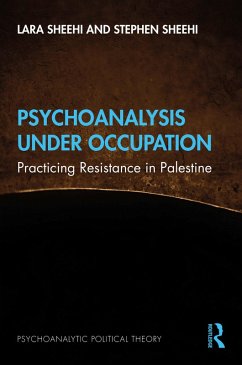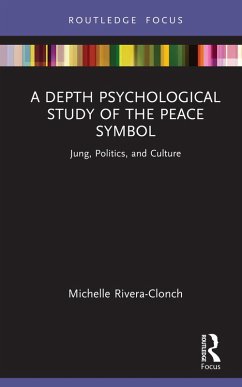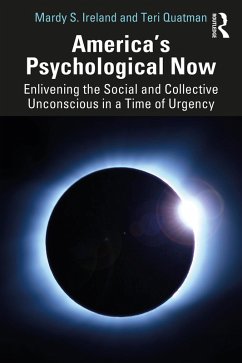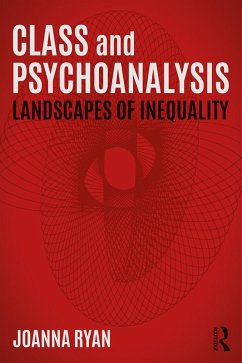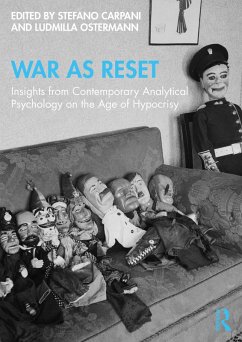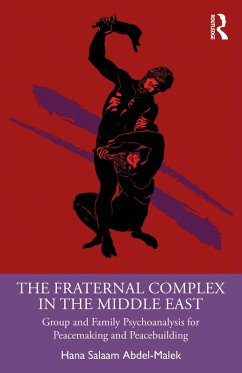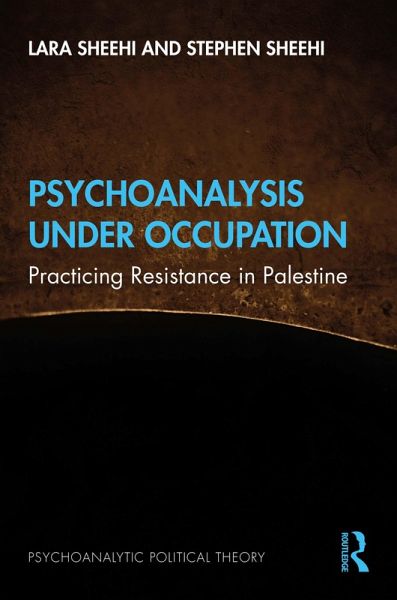
Psychoanalysis Under Occupation (eBook, PDF)
Practicing Resistance in Palestine
Versandkostenfrei!
Sofort per Download lieferbar
39,95 €
inkl. MwSt.
Weitere Ausgaben:

PAYBACK Punkte
20 °P sammeln!
Heavily influenced by Frantz Fanon and critically engaging the theories of decoloniality and liberatory psychoanalysis, Lara Sheehi and Stephen Sheehi platform the lives, perspectives, and insights of psychoanalytically inflected Palestinian psychologists, psychiatrists, and other mental health professionals, centering the stories that non-clinical Palestinians have entrusted to them over four years of community engagement with clinicians throughout historic Palestine.Sheehi and Sheehi document the stories of Palestinian clinicians in relation to settler colonialism and violence but, even more...
Heavily influenced by Frantz Fanon and critically engaging the theories of decoloniality and liberatory psychoanalysis, Lara Sheehi and Stephen Sheehi platform the lives, perspectives, and insights of psychoanalytically inflected Palestinian psychologists, psychiatrists, and other mental health professionals, centering the stories that non-clinical Palestinians have entrusted to them over four years of community engagement with clinicians throughout historic Palestine.
Sheehi and Sheehi document the stories of Palestinian clinicians in relation to settler colonialism and violence but, even more so, in relation to their patients, communities, families, and one another (as a clinical community). In doing so, they track the appearance of settler colonialism as a psychologically extractive process, one that is often effaced by discourses of "normalization," "trauma," "resilience," and human rights, with the aid of clinicians, as well as psychoanalysis.
Psychoanalysis Under Occupation: Practicing Resistance in Palestine unpacks the intersection of psychoanalysis as a psychological practice in Palestine, while also advancing a set of therapeutic theories in which to critically engage and "read" the politically complex array of conditions that define life for Palestinians living under Israeli occupation.
Sheehi and Sheehi document the stories of Palestinian clinicians in relation to settler colonialism and violence but, even more so, in relation to their patients, communities, families, and one another (as a clinical community). In doing so, they track the appearance of settler colonialism as a psychologically extractive process, one that is often effaced by discourses of "normalization," "trauma," "resilience," and human rights, with the aid of clinicians, as well as psychoanalysis.
Psychoanalysis Under Occupation: Practicing Resistance in Palestine unpacks the intersection of psychoanalysis as a psychological practice in Palestine, while also advancing a set of therapeutic theories in which to critically engage and "read" the politically complex array of conditions that define life for Palestinians living under Israeli occupation.
Dieser Download kann aus rechtlichen Gründen nur mit Rechnungsadresse in A, B, BG, CY, CZ, D, DK, EW, E, FIN, F, GR, HR, H, IRL, I, LT, L, LR, M, NL, PL, P, R, S, SLO, SK ausgeliefert werden.




